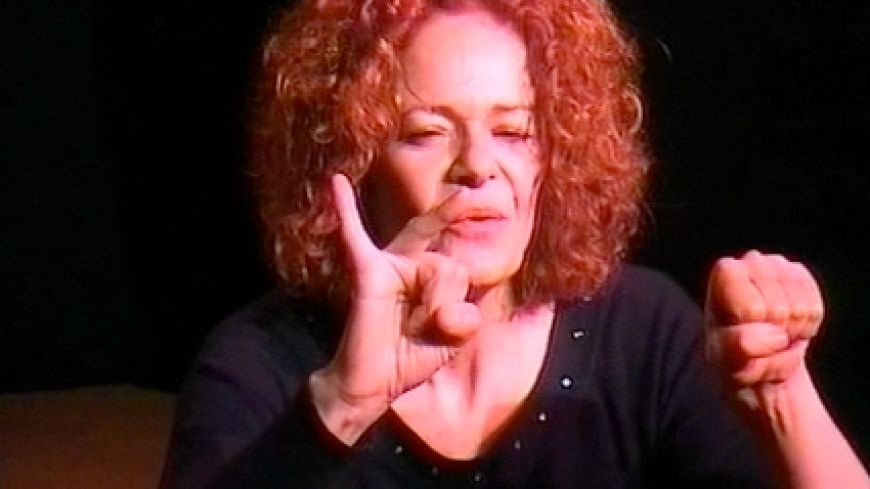
We travel with Rosi from her father's grave back into the past as she works out her relationship to her divorced parents and uncovers the full secret of her father's experience in the concentration camp.
She tells of a childhood marked both by natural warmth from her father and by his violent outbursts. Some triggers that fire his fury are obvious, as when little Rosi practices her numbers by writing them on her arm, the reason for others, like the use of a whistle or the playing of the Blue Danube waltz are chillingly uncovered later.
Razia Israely performs the piece in the voices of all the characters, and while this works in places it can be a little choppy as she moves quickly from the little girl voice of Rosi to the gruff basso profondo of her father. There is also something disconcerting in seeing a 50-year-old women rocking in a chair as a distraught 5 year old.
One of the strengths of the play is its structure - the personal voyage of discovery that allows the effects of the Holocaust to move forward, rippling down the years and through families rather than just stopping with the testimony of survivors. The section where a friend of her father describes in graphic, almost clinical detail the methods of the German-Nazi killing program and the moral and human challenges faced is particularly powerful.
It's a pity that to some extent the title of the play telegraphs her father's probable role - it is likely that the audience is one step ahead of Rosi on her journey and to some degree it blunts the climax. A side story of Rosi going to work as a doctor in Africa allows her to react to some of the issues in the present day but adds little.
The play should be applauded for bringing a lesser-known aspect of the unparalleled horror of the Auschwitz-Birkenau death camp "out of the closet" and humanising an otherwise monstrous story.
At the end the audience filed out the theatre like mourners leaving a graveside, presumably moved to silence.
Note: The company's flyer states that the show is unsuitable to those under 17. Given the work done in schools and by companies like Theatre Objektiv it might be suitable for a slightly younger audience, but it is undeniably disturbing.
Times: 6-16 August and 18-31 August, 3.05 pm.

